The current situation in Venezuela brought to the table a dilemma that the countries of the continent have been facing for a long time. Given the growing repression and institutional deterioration that is advancing in the region with its consequences beyond a country’s border: to either continue issuing resolutions and promoting focused actions with little effect or take actions that certainly stop the democratic deterioration not only of the country involved but of the entire region, which has more and more members with autocratic governments that irremediably affect the welfare of the continent and its population as a whole.
It is no coincidence that the recent resolution on Nicaragua issued by the General Assembly of the Organization of American States (OAS) in Asuncion, Paraguay, before the elections in Venezuela, urged “the States of the hemisphere to redouble their efforts to facilitate, through individual or collective actions, the cessation of the violation of human rights. Put an end to ideological persecution, whether political or religious, to recover democratic institutions and the rule of law in Nicaragua, through constructive dialogue for Nicaragua’s compliance with its human rights obligations. Put an end to ideological persecution, whether political or religious, the recovery of democratic institutions and the rule of law in Nicaragua, through constructive dialogue for the fulfillment by Nicaragua of its human rights obligations, always within the framework of international law, with respect for the principle of non-intervention in internal affairs”.
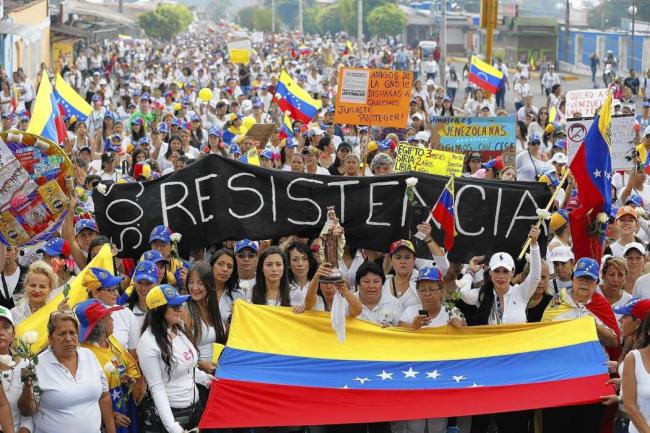
It is very important to understand what this paragraph implies. It asks governments to act. The OAS is aware that it has reached the point where the only way to stop human rights violations, to subsequently recover democracy, is through individual and/or collective actions. This was approved by the foreign ministers of the member countries.
What has been done during the six years of crisis in Nicaragua and in the last six weeks in Venezuela, has not had the desired response and the pattern of behavior of these two countries remains clear and challenging.
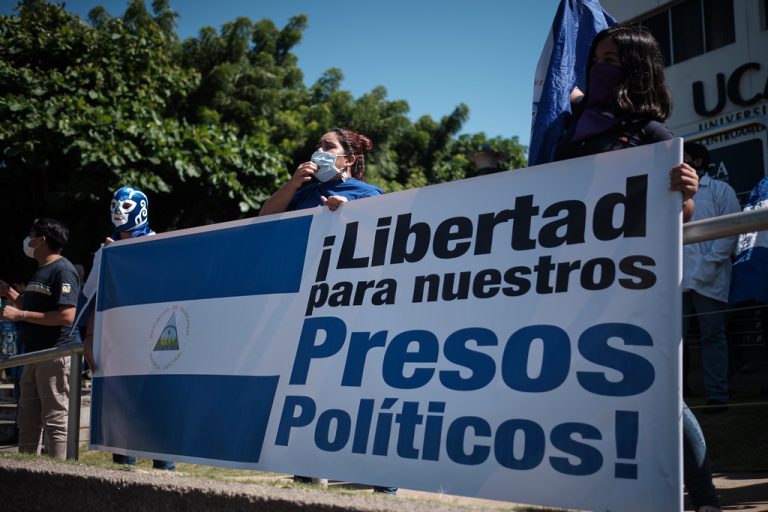
It took six years for the OAS to put on paper that resolution to a crisis that began in 2018 and where despite the constant declarations and calls from the international community then, the democratic deterioration and the violation of human and civil rights worsened year after year. The response of the Ortega Murillo regime has been the same: turn a blind eye, more repression, and more violations. The same is happening now in Venezuela.
And we say that it is on paper because recently, we saw how these same countries, in a first attempt, were unable to approve a resolution on the situation in Venezuela, which is going through a very similar history to that of Nicaragua. There had to be pressure at the highest diplomatic level so that after several days, the same resolution was approved.
However, days later, some of the Caribbean islands (Dominica, Antigua and Barbuda, St. Vincent and the Grenadines, St. Kitts and Nevis, Grenada, and St. Lucia) appeared in an ALBA statement congratulating Nicolás Maduro for having won the Venezuelan elections, thus sending a signal contrary to what was stated in the aforementioned resolutions.
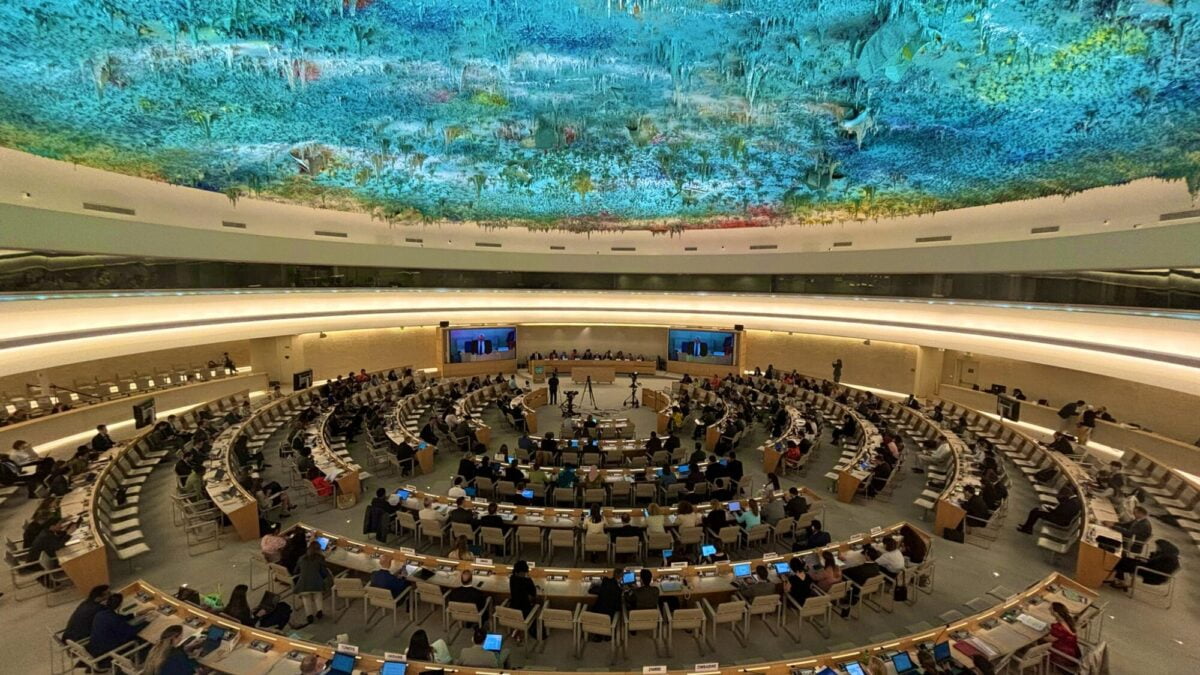
This is part of the problem faced by democratic countries because the lack of impactful actions and the low costs paid by countries for their anti-democratic behavior inspire other rulers, who only care about private gain regardless of the consequences, to replicate these behaviors and this further complicates the political landscape in the region.
Such precedents should not be allowed for the future of the region. The region is currently under threat. Before it was Cuba, now it is Nicaragua, Venezuela, and others that are beginning to show their anti-democratic face, among them Honduras and Bolivia. These are no longer isolated cases. It is no longer a matter of a country’s democratic principles. Now we are putting the democracy and security of the entire region at risk.
Time has shown that what has been done so far has not worked. The Nicaraguan Democratic Concertation (CDN), considers that as stated in the OAS resolution, it is time to act and from the civil society we will work for this recommendation to be fulfilled, let’s not allow the democratic governments of the region to wait another six years to act.
The joint responsibility of the international community to impunity
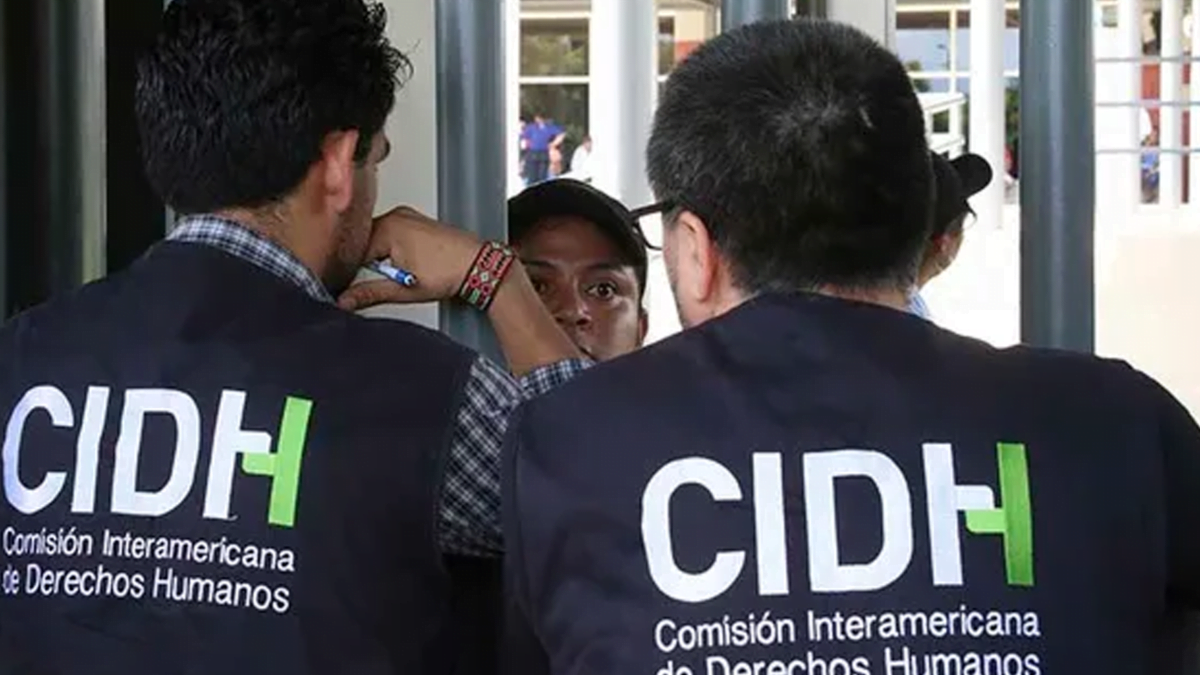
Crimes against humanity result from non-compliance with international humanitarian law and human rights obligations. The perpetration of these crimes affects the coexistence of the international community, which is based on principles and values and sustained by norms that should govern the conduct of nations. The systemic and widespread violation of human rights impacts society and cannot be seen as the problem of a single nation.
The principle of the legal solidarity of States is based on the fact that they are part of a community and what happens in one directly or indirectly affects the rest of its members, obliging them to act in defense of international law. They ensure its primacy, on the understanding that all are jointly responsible for its full validity and that when one fails the others must be ready to intervene. Hence the principle of supplementary jurisdiction in matters of justice against war crimes and crimes against humanity.
The supplementary principle commits all nations and international courts to proceed judicially when it is evident that a State is unwilling to investigate, prosecute, and punish the perpetrators of these crimes, or when the State itself is responsible for non-compliance with the treaties that legally bind it in the field of human rights.
The fight against impunity and the rights of victims to receive reparations for the violations to which they have been subjected are areas that are developing within the framework of public international law, originating in the recognition of the suffering of those affected and the need to confront acts that outrage the conscience of humanity.
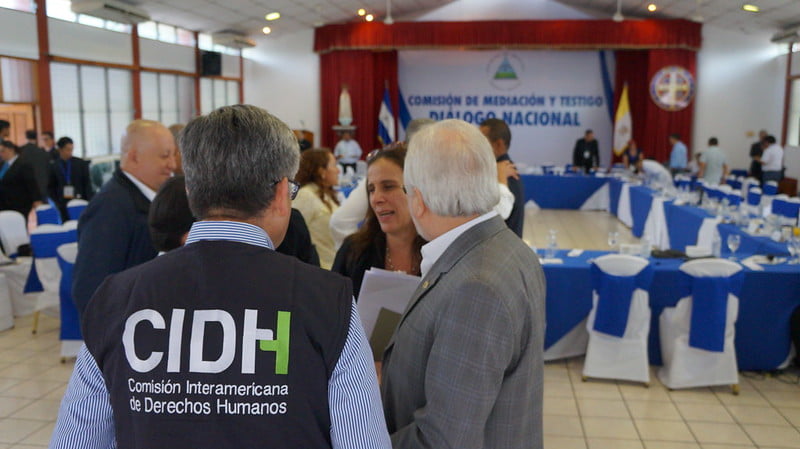
The United Nations has contributed to the codification of international obligations regarding the duties of States in the administration of justice, giving rise to international principles in the fight against impunity and the right of victims to obtain reparation.
With the honorable exception of the investigation process opened in Argentina and the cases brought before the Inter-American Court of Human Rights, the above principles and their derived obligations still do not prevail for thousands of Nicaraguan victims.
Impunity reigns in the Ortega Murillo regime, where they pretend to amnesty crimes that shouldn’t be, reward criminals with promotions and bonuses, and prevent those affected from knowing the truth and from exercising accessible and effective remedies for justice, because the highest State officials, Daniel Ortega and Rosario Murillo, are the most responsible for the perpetration of these crimes. They organize and direct a criminal structure that implements increasingly effective repressive methods and pursues without any limit dissenting voice.
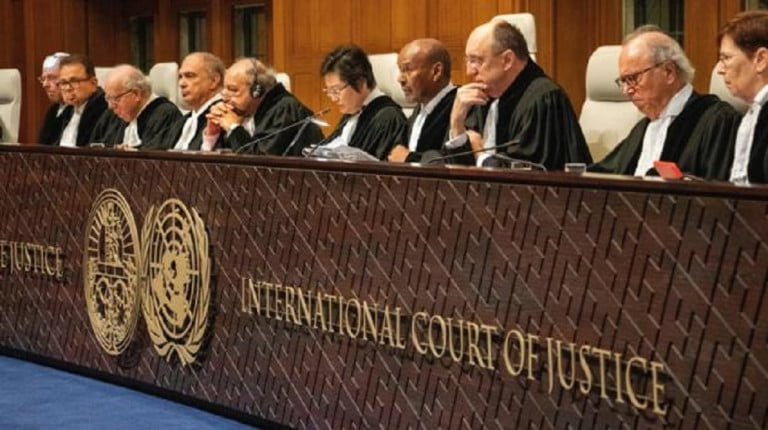
Faced with rampant impunity, Nicaraguans without the possibility of access to independent courts, placed their hopes in the various avenues of international justice, guided by the recommendations of the United Nations Group of Human Rights Experts on Nicaragua (GHREN), the Interdisciplinary Group of Independent Experts (GIEI) and the Special Follow-up Mechanism for Nicaragua (MESENI) of the Inter-American Commission on Human Rights (IACHR), and the United Nations High Commissioner for Human Rights.
The Nicaraguan Democratic Concertation (CDN) shares the aspiration that the international community honor its obligations in terms of international justice, attending to the recommendations of human rights organizations, promoting the implementation of some of the following actions:
1. Internationalized tribunals through the application of the principle of universal justice in the domestic legislation of States (Argentina case).
2. The International Criminal Court by resolution of the United Nations Security Council or by action of the prosecutor, in cases of crimes committed in the territory of States parties to the Rome Statute.
3. The International Court of Justice, through strategic litigation in the public interest for non-compliance with obligations as a State party to the Convention Against Torture, the Statute of Stateless Persons, and the Convention on the Reduction of Statelessness.
4. The Inter-American Court of Human Rights, promoting the expansion of cases and providing it with sufficient resources and means.
